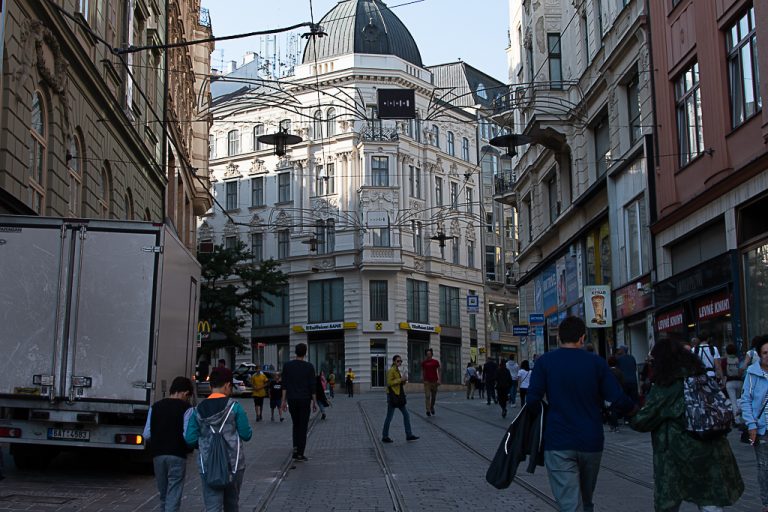After several years of ever-rising rents in Brno, the cost of housing in Brno might be finally cooling down. However, numerous factors on both the demand and supply sides may still affect the situation. Photo credit: KK.
Brno, Jun 3 (BD) – “Demand is significantly higher than supply in the city,” said Adam Lasota, executive director of Foreigners Brno. The factors behind the rising rental prices are numerous.
With Brno being the second largest city in the Czech Republic and gaining increasing importance within the country and on the world map, it is inevitable that it would attract many businesses and their staff. Coupled with the fact that Brno has several high-quality universities, the city is a popular destination for Czech and international students.
“People come to Brno for work, both Czechs and foreigners. They often want to live alone and for the lowest possible price, so they choose to live in small flats (1+kk, 1+1), and there is a lack of them. Not only expats, but also students come to our city to study – so the dorms are at the limit of their capacity. So they have no choice but to live in rented flats,” explained Lasota.
According to Lasota, Brno developers face a huge amount of administration, “bureaucracy if you will”, to get a building permit, which hinders their capacity to satisfy the demand for new apartments. Paradoxically, there are a large number of empty apartments in Brno needing reconstruction, whose owners or the city do not have the money to repair them and make them available on the market. Lasota estimated the number at 1,500. Brno data portal data.brno.cz shows that the city is also home to around 1,500 Airbnb apartments which, as in other European cities, may be contributing to the lack of available housing for residents.
“Yet another reason for the increasing rent prices is the lack of availability of mortgages – people would like to buy their own property, but 20% of the property price is unattainable. Many people then decide to rent, and logically, this increases the demand,” added Lasota.
“Rent prices are definitely rising, but the increase is not as dramatic as in previous years. So far this year, the increase is only between 3 and 8% when compared to prices from last year. Of course, this depends on the size of the apartment. The good news is that rental prices are expected to stabilize,” said Lasota.
According to data from real estate website RealityMIX.cz, as of May 2019, the average rent per month for an apartment of 60 m² is around CZK 14,200; by comparison, in May 2017, the cost was just under CZK 13,000.
Rising housing costs in inner cities are driving both buyers and tenants into the suburbs, a well-known trend from abroad that has also been observed lately in Brno.
As is quite common in all bigger European cities, the closer you get to the city center, the more expensive the apartments become. Other popular locations with higher prices are Veveří and Královo Pole. Lasota mentioned Cejl as a cheaper location which is still close to the centre. “Student demand is the highest in the center. So, somewhat ironically, it is the students who have relatively small incomes who are paying the highest rents per m2 on average,” Lasota explained.
The situation in the housing market is similar. Currently, the Czech economy is growing; the Czech Statistical Office (CZSO) indicates that the country’s gross domestic product has increased by 2.6% year-on-year, as of the first quarter of 2019. With the simultaneous increase in salaries, people now have more money to spend than ever in the country’s history, fuelling the demand for home ownership.
In 2018, Eurostat released data which stated that the Czech Republic has the 7th fastest-growing house prices in the EU (read more in our previous story: “Czech Republic Has the 7th Fastest Growing Property Prices in the EU”). For the last quarter of 2018, Eurostat indicated that Czechia has had a 9.9% increase in housing prices, compared to Q4 of 2017.
2017 statistics for Brno indicated that 23% of the population of the city believed that the housing situation should be improved. The same statistics the following year showed that only around half of the city’s population feel satisfied with the availability of housing in Brno.
More optimistically, May 2019 data from CZSO shows that there is a notable increase in house-building in the South Moravian region. In Brno city and Brno-venkov, 1,155 houses were constructed in the first quarter of 2019, an increase of more than 100% from the 438 houses in the same period of 2018.
Get the news first! Subscribe to our daily newsletter here. Top stories of the day in your mailbox every morning.







